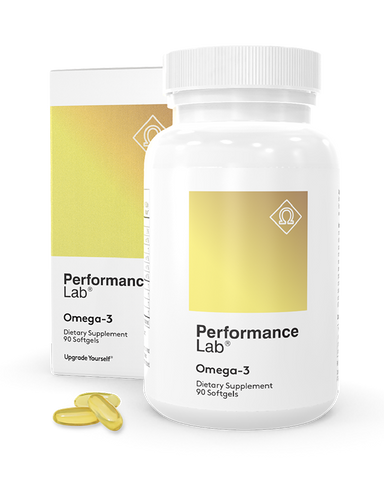We’ve probably all been told at some point that you should be taking an omega-3 supplement, regardless of whether you eat animal products or not.
And there’s merit behind that.
Whether your skin is dry and flaky and your hair is dull and brittle, or your joints are creaking like the Tin Man, they could prove pretty useful for you.
But even if you don’t fall into one of the above, popping an EFA (essential fatty acids, such as Omega 3-fatty acids) supplement should probably be on your daily to-do list.
Omega-3 fatty acids are a critical part of any diet, but more recently, there’s been a lot of controversy over the efficacy of fish oils.
Whichever one you’re considering, here’s what you need to know about plant-based Omega 3s vs Fish Oils.
What Are Omega-3s?
Omega-3s are a type of polyunsaturated fatty acid essential to human health.
They are found in both plants and animals, but the human body cannot synthesize them on its own, hence why they are called “essential fatty acids,” abbreviated to EFAs.
While several types of omega-3s exist, the two we commonly study are EPA (eicosapentaenoic acid) and DHA (docosahexaenoic acid).
What’s this about plant-based Omega 3 Supplements?
This is probably a bit confusing for you because if you’re like the other 90% of the population who doesn't know much about essential fatty acids (EFAs) such as Omega 3s, you probably are only aware of fish oils as the main supplemental source.
But it’s not the only one.
Plant-based (vegan) omega 3 supplements are giving fish oils a run for their money.
Most plant essential fatty acids you probably know of come in the form of alpha-linoleic acid (ALA), the third most commonly recognized EFA.
In order to be used by the body, ALA is converted into EPA and DHA.
However, the efficacy of this process isn’t very high, which means it’s not really worth taking; you’ll learn more about why if you keep reading.
Here’s where things get interesting: algal oil.
Algae based omega-3 supplements are one of the newest additions to the supplement market, and they may be one of the best.
Certain species of algae are rich in the two essential fatty acids, EPA and DHA, and they are the producers of it—not fish.
What Are Fish Oils?
Exactly like the name suggests, fish oils are extracted from the tissue of cold-water fatty fish and currently represent one of the most prominent sources of omega-3s on the market.
But, of course, they’re not suitable for people following a plant-based (vegan) diet.
Oftentimes, fish oils are derived from various species of fatty fish, including sardines, mackerel, and anchovies, or you may have a single source from something like krill.
Interestingly, though, fish don’t inherently contain omega-3s.
When fish consume phytoplankton that consumed microalgae, omega-3s accumulate in their tissues, which is how we make “fish oil”.
This is why plant-based Omega 3s sourced directly from algae is the best option, in our honest opinion. Why use the "middle man" when you can buy direct from the source?
Learn more about our Performance Lab Omega 3 sourced from algae
4 Reasons Why You Need Essential Fatty Acids Such as Omega 3s
If you’re going to pay attention to any part of this article, this is it.
Due to the drastically skewed ratios of omega-3:omega-6 fats in our diet—thanks to things like CAFO meats, baked goods, and everything else in the standard American diet— essential fatty acids are a non-negotiable part of any diet, whether you choose to get them from plants or marine sources.
Why?
How are these for some reasons:
1. Omega 3s can boost cognitive function
DHA is imperative to proper brain function and is taken up by the brain preferentially over other fatty acids. It’s necessary to both growth and development of the brain, as well as learning abilities.
Deficiencies have been lined to fetal alcohol syndrome, ADHD, cystic fibrosis, phenylketonuria, unipolar depression, aggressive hostility, and adrenoleukodystrophy.
Decreased amounts of brain DHA are also associated with cognitive decline during aging and Alzheimer disease 1.
2. Omega 3s can protect your heart
Omega-3 supplementation has been shown to protect your heart against cardiovascular disease and help reduce the risk of hypertension, thrombosis, myocardial infarction, and cardiac arrhythmias.
This is because omega-3 fatty acids increase the ratio of high-density lipoprotein/low-density lipoprotein (HDL/LDL), as well as decrease the total cholesterol/HDL ratio 2.
3. Strengthen your immune system and reduces inflammation
Omega-3 fatty acids have also shown to have immuno-modulatory effects and decrease levels of CRP, TNF α, IL-6, and IL-1—all markers of inflammation.
They have been used with success in the treatment of various inflammatory conditions, including rheumatoid arthritis, Crohn’s disease, ulcerative colitis, psoriasis, asthma, lupus, and cystic fibrosis 2.
4. Supports nervous function
Omega-3 fatty acids are a critical structural component of human cell membranes, particularly in nerve cells 2.
DHA, specifically, is present in large amounts in neuron membrane phospholipids, where it is involved in proper function of the nervous system 3
Is Omega 3 the same as Fish Oil?
What’s better: Plant Based Omega 3 or Fish Oil?
When you compare a fish oil supplements with that of a plant-based one, they’re pretty even keel with respect to dosage of EPA and DHA.
However, aside from essential fatty acid amounts, there are some differences you should be aware of.
The problem with fish oils
When you look at commercial marine based omega-3 supplements, you come into contact with a few problems 2:
- Lack of sustainability – Overfishing and bycatch are two huge problems associated with the commercial fishing industry. The number of overfished stocks has been steadily increasing since the 1950s.
- Contaminants – Chemical contaminants are commonplace in fish oil and include things like mercury and pesticides, which can be toxic to humans.
- Odor – It’s no question that fish has an odor, with some supplements being more potent than others. Most people find the odor of fish oils quite unpleasant.
- Rancidity – EFAs are incredibly delicate and depending on the processing method, can oxidize and become rancid before they even reach your mouth. Not only does this add to the smelly odor, but it also means you’re putting oxidized fats into your body, which are highly hazardous to health.
Why you should look towards algae sourced Omega 3 Supplements
The problem with most plant-based dietary sources of EFAs (nuts and seeds) is that in order to be useful for your body, they have to be converted.
The main form of omega-3 fatty acids found in plants is called alpha-linolenic acid (ALA), which has a conversion rate of around 6% to EPA and 3.8% to DHA 4… not very high, right?
As one of the most sustainable options for omega-3 fatty acids, algal oil provides a lot of possibility for phasing out fish oils.
Interestingly enough, microalgae are the initial producers of EPA and DHA in the marine food chain, so if fish can’t produce EPA and DHA, why wouldn’t you skip the seafood and go directly towards the source of omega-3s? 2
In addition to this, they also thrive in number of environmental conditions, making them much more adept to sustainable growth.
What To Look For In An Omega-3 Supplement

First and foremost, you want a quality supplement.
You can find essential fatty acids that range from extremely cheap to “I definitely can’t afford these for more than a month,” but in either case, opt for the highest quality for your financial means.
However, in doing so, pay attention to the sourcing of your oils.
Most often, fish oils are derived from fatty fish, and aside from poor sourcing, they can also leave a nasty aftertaste, contain heavy metals and other contaminants, as well as eco-destructive consequences.
The other better (and sustainable!!!) source is algae. Performance Lab Omega-3 supplies safe, clean, and sustainable EPA+DHA Omega-3s directly from their original source in all aquatic ecosystems: algae.
Performance Lab® Omega-3 with life’s™OMEGA algal oil supplies high-potency EPA+DHA benefits, without fish oil drawbacks. It’s ultraclean, containing no heavy metals, PCBs, or toxic contaminants; is environmentally friendly and sustainable; and traceable from start to finish.
Learn more about Performance Lab Omega 3
References
- LA Horrocks, YK Yeo. Health benefits of docosahexaenoic acid (DHA). Pharmacol Res. 1999 Sep; 40(3): 211-25.
- TC Adarme-Vega, DK Lim, M Timmins, F Vernen, Y Li, PM Schenk. Microalgal biofactories: a promising approach towards sustainable omega-3 fatty acid production. Microb Cell Fact. 2012; 11: 96.
- D Swanson, R Block, SA Mousa. Omega-3 fatty acids EPA and DHA: health benefits throughout life. Adv Nutr. 2012; 3(1): 1-7.
- H Gerster. Can adults adequately convert alpha-linolenic acid (18:3n-3) to eicosapentaenoic acid (20:5n-3) and docosahexaenoic acid (22:6n-3)? Int J Vitam Nutr Res. 1998; 68(3): 159-73.
















